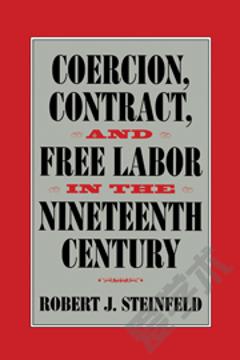From Bondage to Contract: Wage Labor, Marriage, and the Market in the Age of Slave Emancipation
In the era of slave emancipation no ideal of freedom had greater power than that of contract. The antislavery claim was that the negation of chattel status lay in the contracts of wage labor and marriage. Signifying self-ownership, volition, and reciprocal exchange among formally equal individuals, contract became the dominant metaphor for social relations and the very symbol of freedom. This 1999 book explores how a generation of American thinkers and reformers - abolitionists, former slaves, feminists, labor advocates, jurists, moralists, and social scientists - drew on contract to condemn the evils of chattel slavery as well as to measure the virtues of free society. Their arguments over the meaning of slavery and freedom were grounded in changing circumstances of labor and home life on both sides of the Mason-Dixon line. At the heart of these arguments lay the problem of defining which realms of self and social existence could be rendered market commodities and which could not.
{{comment.content}}








 京公网安备 11010802027623号
京公网安备 11010802027623号